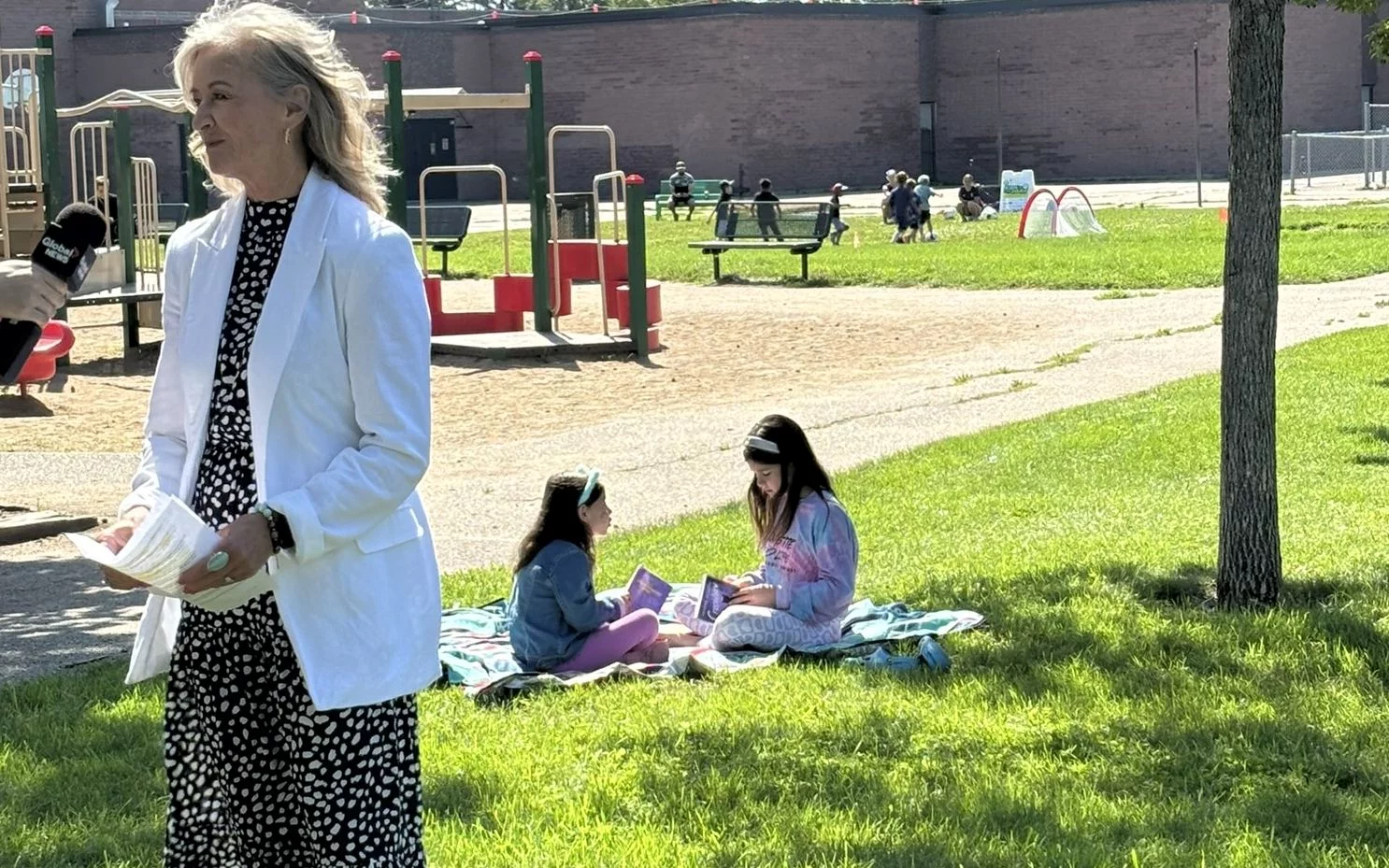Reading throughout summer with Saskatoon Public Schools
Midway through the summer, Global Saskatoon approached Saskatoon Public Schools and the Saskatoon Public Library with the question: what are your tips for keeping children reading over summer?
Reading over summer break - why it matters
Kellie Bell, a recently retired Grade 1 teacher with Saskatoon Public Schools, started by reminding us why keeping up with reading over summer break is important.
"We all know intuitively that keeping our children reading is important. But, in the busy summer months, it can sort of fall off as a priority. And that's understandable," says Kellie. "But my suggestion is to try and make some time for it because it really makes a difference in your child's academic success. Language and reading are progressive skills. And, as with any skill that progresses over time, they benefit from consistent practice."
The reading & language skills progression
Kellie provided an overview of the language and reading progression through the different ages:
- BEFORE SCHOOL: The years before school starts are for early language development. This is where kids are building their vocabularies and developing understanding. They love to be read to.
- K to GRADE 2: Next is that beginning reading stage that takes place between Kindergarten and about Grade 2. Children are learning to match letters to sounds, identify high-frequency words by heart, and sounding out others. These children still enjoy being read to, but they also might like to read to YOU or even by themselves.
- GRADE 3 (approx.): Around the age of 9, we transition to fluent reading. Children will discover what they like to read about and can select their own materials. Parents can follow their lead.
- GRADE 4 & BEYOND: And, or the later elementary years and onto high school? Kellie says she likes to say that kids first learn to read and then read to learn. They continue to develop their ability to tackle more difficult texts and to extract meaning.
Tips for making summer reading fun
Kellie reminded us that reading IS fun, but she recognized that it can seem like a chore for some. She said it's important that we meet the learner where they're at. She admitted, if you already have a voracious reader, your task is much easier. Basically, keep them in books that interest them, challenge them and expand their horizons.
For children in the skill-building phase or who are having trouble mastering skills, her advice is gentle persistence. To set aside small but regular blocks of time to explore books that interest them.
"Maybe it's allocating a little time during a snack break at the paddling pool when they're relaxed and have burned off some energy," says Kellie. "Maybe you model family reading time at bedtime, and everyone reads together before the lights go off."
She reminds parents that they shouldn't jump to the conclusion that their child doesn't enjoy reading because that's where they're at today.
"I see children all the time that just aren't readers YET," says Kellie. "And once they develop the core skills or discover a series they're obsessed with? All of a sudden, a reader appears."
Saskatoon Public Library summer programming
Global also got the chance to hear from Saache Heinrich, Children's Programming Specialist with the Saskatoon Public Library.
Saache outlined some of the services the library has to support families over summer:
- SUMMER READING CLUB: All branches of the public library offer this program. Children can pick up booklets with reading suggestions and track their summer reading. This club runs until September 2.
- BOOK WORMS: This is a program for ages 5-7. Children read a picture book together and then do a craft or activity related to the story.
- GENRE EXPLORERS: For ages 8-12, this group focuses on the different genres of chapter books.
Saache also offered some advice for parents selecting reading materials for their children:
- Ask library staff for assistance.
- Bring your children with you so kids can explore new topics. Suggest books that connect with the child's interests - e.g. gaming or graphic novels.
- Pick out a book for yourself! Kids that see their parents reading are more likely to pick up their own books.
Watch the full clip by clicking here.


